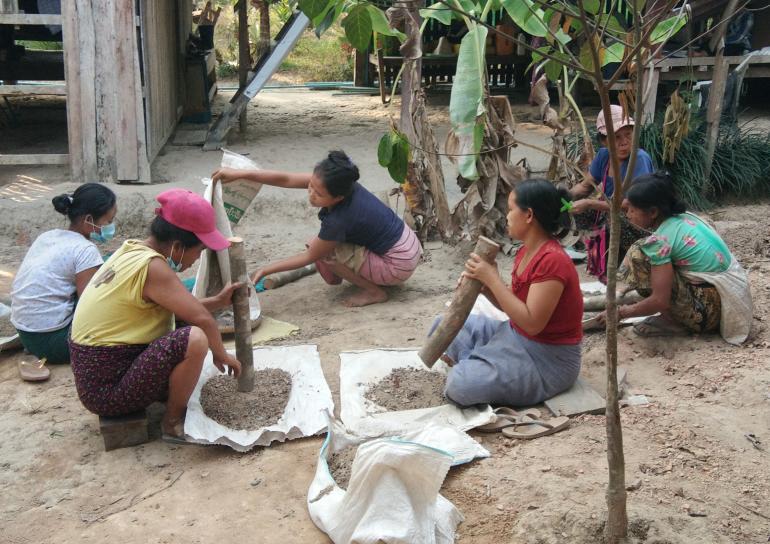International Day of Rural Women October 15

The UN General Assembly established the International Day of Rural Women in its resolution 62/136 of December 18, 2007. It recognizes rural women's critical role and contribution, including indigenous women, in enhancing agricultural and rural development, improving food security, and eradicating rural poverty.
Rural women's lives are hard as they mobilize their local resources for the betterment of daily life based on self-help. In addition to the kitchen and childcare, they spend their time and work in agriculture.
In this pandemic, women, especially in rural areas, are encountering problems more than in pre-pandemic periods. Many of the rural women, especially widows and the elderly, suffer from isolation. Most of them are far away from medical and social care.
Many of the Asian rural women provide the labor force in the agriculture, forestry and fishery sectors. Many women represent the backbone of rural households, providing family as well as farm labor. Rural women often seek to increase household income and food security through off-farm employment in small and medium enterprises.
Women and girls, for example in Lao, perform 50 to 70 percent of agriculture and productive tasks in addition to household activities. Women farmers produce primarily for household consumption, and rural women obtain as much as 30 percent of the family diet and household needs from foraging.
Women in Malaysia are most extensively involved in field crops such as rubber, cocoa, coconut, coffee, tea, and other diversified short-term cash crops cultivation and mixed farming.
Due to the political unrest and crisis, civilians, many women of certain countries, have to rely on the care in refugees' camps. Many of the rural women are also among the internally displaced.
In addition to the Covid-19 crisis, the women in Myanmar ethnic conflict regions have to face the maltreatment of Myanmar Tatmadaw, especially in times of military operation against the different ethnic revolution forces.
Since the military coup on February 1, armed fighting took place in Myanmar ethnic regions. Many women have to hide in the jungles to keep themselves away from possible arrest, torture, and killing.
On the International Day of Rural Women, attention should be paid to the life and situation of rural women in different parts of the world, and more efforts for a better situation of the rural women should be carried out.
To promote human development of the most vulnerable women through special education, skill development, protective livelihood options the Catholic Church of Myanmar plans to reach out to unreached women and girls through formal, informal and non-formal education in every diocese. The Church provides employable skills and ensure risk-free livelihood options to women and girls through skill development and employment guidance. The Catholic Church tries to ensure the dignity of women through training in Gender rights and ethnic rights.
"It is very sad to see the violations of rural women's rights in Myanmar due to the attack against the innocent women is worsening, especially in this time of political crisis. Law that secures the lives of women should be enforced. Using women as human shields in military operations must be stopped. Sexual exploitation of women in war zones should be eradicated. The voice of women should be heard. The international community should be attentive to the unjust suppression upon women and should support to stop all that violate the rights of rural women," said Elizabeth Chaw, an environmental activist.
Radio Veritas Asia (RVA), a media platform of the Catholic Church, aims to share Christ. RVA started in 1969 as a continental Catholic radio station to serve Asian countries in their respective local language, thus earning the tag “the Voice of Asian Christianity.” Responding to the emerging context, RVA embraced media platforms to connect with the global Asian audience via its 21 language websites and various social media platforms.











